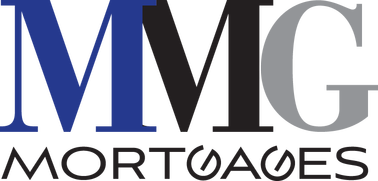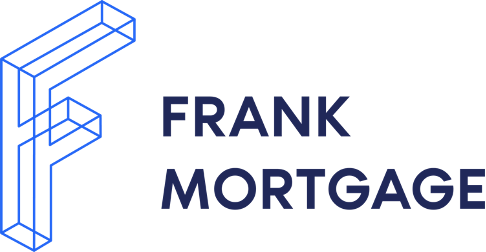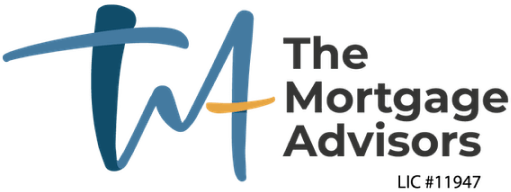Find the Best 4-Year Fixed Mortgage Rates in Canada
Compare the most current 4-year fixed rates from major banks, credit unions and mortgage brokers.
*Rates are based on an average mortgage of $300,000
*Rates are based on an average mortgage of $300,000
*Rates are based on an average mortgage of $300,000
Today's Best Mortgage Rates in Canada
Evaluate Canada's best 4-year fixed mortgage rates in one place. RATESDOTCAs Rate Matrix lets you compare pricing for all key mortgage types and terms.
Rates are based on an average mortgage of $500,000 and subject to change based on filter criteria.
Updated 21:46 on Jul 22, 2025| Placeholder |
Insured
The rates in this column apply to borrowers who have purchased mortgage default insurance.
This is required when you purchase a home with less than a 20% down payment.
The home must be owner-occupied and the amortization must be 25 years or less.
|
80% LTV
The rates in this column apply to mortgage amounts between 65.01% and 80% of the property value. The home must be owner-occupied and have an amortization of 25 years or less. You must have purchased it for less than $1 million. These rates are not available on refinances. Refinances require "Uninsured" rates.
|
65% LTV
The rates in this column apply to mortgage amounts that are 65% of the property value or less. The home must be owner-occupied and have an amortization of 25 years or less. You must have purchased it for less than $1 million. These rates are not available on refinances. Refinances require "Uninsured" rates.
|
Uninsured
The rates in this column apply to purchases over $1 million, refinances and amortizations over 25 years. More info on the differences between insured and uninsured rates.
|
Bank Rate
Bank Rate is the mortgage interest rate posted by the big banks in Canada.
|
|---|---|---|---|---|---|
| 1-year fixed rate | 4.99% | 4.79% | 4.79% | 5.59% |
5.49%
|
| 2-years fixed rate | 4.04% | 4.34% | 4.34% | 4.54% |
4.79%
|
| 3-years fixed rate | 3.87% | 4.09% | 4.09% | 4.24% |
4.29%
|
| 4-years fixed rate | 4.09% | 4.15% | 4.15% | 4.44% |
4.39%
|
| 5-years fixed rate | 3.91% | 3.89% | 3.89% | 3.91% |
4.09%
|
| 7-years fixed rate | 5.19% | 5.00% | 5.00% | 5.19% |
5.00%
|
| 10-years fixed rate | 5.24% | 5.24% | 5.24% | 5.29% |
6.09%
|
| 3-years variable rate | 4.40% | 4.30% | 4.30% | 4.40% |
6.35%
|
| 5-years variable rate | 4.04% | 4.04% | 4.04% | 4.05% |
4.25%
|
| HELOC rate | N/A | N/A | N/A | N/A |
N/A
|
| Stress Test | 5.25% | 5.25% | 5.25% | 5.25% |
N/A
|
Today's Best Mortgage Rates in Canada
Evaluate Canada’s best mortgage rates in one place. You can compare the most current mortgage rates and monthly payments from 175+ banks and lenders across Canada.
Rates are based on an average mortgage of $500,000 and subject to change based on filter criteria.
| Lender
|
Insured
|
Insurable
|
Uninsured
|
|---|---|---|---|
|
MMG Mortgages
|
3.99%
$2,627.39 / month
|
4.24%
$2,695.56 / month
|
4.19%
$2,681.85 / month
|
|
Mortio Financial Corp
|
3.99%
$2,627.39 / month
|
4.24%
$2,695.56 / month
|
4.14%
$2,668.19 / month
|
|
Frank Mortgage
|
4.09%
$2,654.55 / month
|
4.19%
$2,681.85 / month
|
4.09%
$2,654.55 / month
|
|
Northwood Mortgage Ltd.
|
4.14%
$2,668.19 / month
|
4.24%
$2,695.56 / month
|
4.24%
$2,695.56 / month
|
|
Mortgage Outlet - Russel Inspektor
|
4.29%
$2,709.29 / month
|
4.29%
$2,709.29 / month
|
4.29%
$2,709.29 / month
|
|
Innovation Federal Credit Union
|
4.39%
$2,736.87 / month
|
4.39%
$2,736.87 / month
|
4.39%
$2,736.87 / month
|
|
True North Mortgage
|
2.99%
$2,363.66 / month
|
2.99%
$2,363.66 / month
|
2.99%
$2,363.66 / month
|
|
The Mortgage Advisors
|
3.87%
$2,594.98 / month
|
3.87%
$2,594.98 / month
|
3.87%
$2,594.98 / month
|
|
Nesto
|
3.91%
$2,605.76 / month
|
3.91%
$2,605.76 / month
|
3.91%
$2,605.76 / month
|
|
Hypotheca
|
3.94%
$2,613.86 / month
|
3.94%
$2,613.86 / month
|
3.94%
$2,613.86 / month
|
|
MortgagestoGo
|
3.94%
$2,613.86 / month
|
3.94%
$2,613.86 / month
|
3.94%
$2,613.86 / month
|
|
One Link Mortgage & Financial
|
3.95%
$2,616.57 / month
|
3.95%
$2,616.57 / month
|
3.95%
$2,616.57 / month
|
|
Sudbury Credit Union
|
3.99%
$2,627.39 / month
|
3.99%
$2,627.39 / month
|
3.99%
$2,627.39 / month
|
|
Mainstreet Credit Union
|
3.99%
$2,627.39 / month
|
3.99%
$2,627.39 / month
|
3.99%
$2,627.39 / month
|
|
City Wide Financial Corp
|
3.99%
$2,627.39 / month
|
3.99%
$2,627.39 / month
|
3.99%
$2,627.39 / month
|
|
Northern Birch Credit Union
|
3.99%
$2,627.39 / month
|
3.99%
$2,627.39 / month
|
3.99%
$2,627.39 / month
|
|
The Police Credit Union
|
3.99%
$2,627.39 / month
|
3.99%
$2,627.39 / month
|
3.99%
$2,627.39 / month
|
|
Monster Mortgage
|
3.99%
$2,627.39 / month
|
3.99%
$2,627.39 / month
|
3.99%
$2,627.39 / month
|
Jump straight to:
- What is a 4-year fixed mortgage rate?
- What causes changes in 4-year fixed rates?
- History of 4-year fixed mortgage rates
- Why are 4-year fixed rates so popular in Canada?
- Pros and cons of a 4-year fixed mortgage
- Predicting 4-year fixed mortgage rate
- 4-year fixed mortgage rate tips
- Is a 4-year fixed mortgage right for me?
- Frequently asked questions about 4-year fixed rate mortgages
What is a 4-year fixed mortgage rate?
When you agree to a fixed rate mortgage, in this case for a period of 4 years, the interest rate will not change during the term of your mortgage.
There will be no change to the payments you make every month. There are no surprises in this case as you’ll know exactly how much your payments will be until the end of the term and the amount of mortgage you would have paid off by the end of the term. At the end of the 4-year term, if there is still a balance and time left on your amortization period, the lender will normally offer a renewal with a choice of a new term and the interest rate available at that time.
A general rule of thumb is, the shorter the duration of a mortgage term, the lower the interest rate, and the less it costs to borrow the money. However, since the Bank of Canada’s rate change spree starting March 2022, the interest rates for different terms have hovered close. Among the most popular fixed rate mortgage is the 5-year term. A 4-year term stands close, and offers the borrower the chance to lock in an interest rate for a shorter-term commitment. If you decide to go with a short mortgage term, it's easier to avoid prepayment penalties if you plan to sell your home in the near future.
What causes changes in 4-year fixed rates?
The 4-year fixed mortgage rates in Canada can be influenced by a variety of factors, including:
- Inflation: In the last one year, Canadians have dealt with rising interest rates, inflation and a global economic downturn. When inflation is high, lenders may increase mortgage rates to account for the increased cost of living.
- Economic conditions: The state of the economy can influence mortgage rates as well. When the economy is strong and there is low unemployment, mortgage rates tend to rise as demand for mortgages increases. Conversely, when the economy is weak, and unemployment is high, mortgage rates tend to fall.
- The Bank of Canada’s Monetary Policy: The Bank of Canada’s overnight rate increase can have a significant impact on the yield of a 4-year bond. A higher overnight rate leads to increase in interest rates across the economy, including the yield on 4-year bonds. Starting in March 2022, the Bank of Canada has raised the policy interest rate quickly and consistently — from 0.25% to 4.5%. This has resulted in borrowing rates going up for households and businesses, spending has declined, especially impacting the housing market.
- Yields on 4-year government bonds - When the Bank of Canada raises its overnight rate, the cost of borrowing for banks and other financial institutions generally increases. As a result, the yields on short-term bonds, including 4-year bonds, tend to rise as well. Conversely, when the Bank of Canada lowers its overnight rate, the cost of borrowing decreases and the yields on short-term bonds, including 4-year bonds, tend to fall.
In January this year, the Bank of Canada said it expects to pause rate hikes but this pause is conditional and depends upon whether the economy develops as per economists’ predictions and whether inflation continues to fall. With economic growth slowing to close to zero in the first half of 2023, inflation should drop to around 3% in the middle of the year and reach the Bank’s 2% target in 2024.
History of 4-year fixed mortgage rates
Discounted 4-year fixed mortgage rates don’t tend to move with the same frequency of other fixed rates, such as the 3-year and 5-year fixed rates.
Since 2012, 4-year fixed rates largely remained at or just below 3.00%, before falling to around 2.50% over the course of 2016 and 2017.
Between 2017 and 2020, 4-year fixed rates rose to a high of 2.50% by early 2019, before falling below 2.00% in 2020. The lowest 4-year fixed on record (as of November 1, 2020) is 1.56%.
| Year (Closing) | Yield | Change | Min | Max |
|---|---|---|---|---|
| 2023 10-Feb | 3.47% | -13.4 bp | 2.972% | 3.61% |
| 2022 31-Dec | 3.61% | +242.7 bp | 1.178% | 4.00% |
| 2021 31-Dec | 1.18% | +88.3 bp | 0.288% | 1.45% |
| 2020 31-Dec | 0.30% | -140.3 bp | 0.225% | 1.70% |
| 2019 31-Dec | 1.70% | -20.3 bp | 1.194% | 1.97% |
| 2018 31-Dec | 1.90% | +12.7 bp | 1.774% | 2.45% |
| 2017 31-Dec | 1.77% | +70.2 bp | 0.823% | 1.78% |
| 2016 31-Dec | 1.07% | +46.9 bp | 0.370% | 1.19% |
| 2015 31-Dec | 0.60% | -6.4 bp | 0.408% | 0.90% |
Source: World Government Bonds
As fixed mortgage rates are determined by bond yields, a decrease in bond yields will generally lead to a decrease in fixed mortgage rates, while an increase in bond yields will lead to an increase in fixed mortgage rates. Therefore, when the Bank of Canada increases the overnight rate, it can lead to an increase in bond yields and a subsequent increase in fixed mortgage rates, and vice versa.
It's worth noting that the impact of BoC overnight rate changes on the bond market and fixed mortgage rate market can be complex and depend on many other factors, such as inflation expectations, economic growth, and global financial conditions. As a result, the relationship between these markets can be dynamic and subject to change over time.
Why are 4-year fixed rates so popular in Canada?
Most mortgage shoppers don’t set out specifically in search of a 4-year fixed term. Instead, 4-year mortgage terms are often an afterthought.
On occasion, however, they can offer a decent balance between payment stability and interest expense.
Still, just 1 in 16 borrowers choose a 4-year fixed mortgage term, or about 6%.
Below, we explore more of the benefits and drawbacks of this largely overlooked term.
Pros and cons of a 4-year fixed mortgage
Most mortgage shoppers don’t set out specifically in search of a 4-year fixed term. Instead, 4-year mortgage terms are often an afterthought.
On occasion, however, they can offer a decent balance between payment stability and interest expense.
Still, just 1 in 16 borrowers choose a 4-year fixed mortgage term, or about 6%.
Below, we explore more of the benefits and drawbacks of this largely overlooked term.
Benefits of a 4-year fixed mortgage
Most of the time, the 4-year mortgage doesn’t have a whole lot going for it. Except, perhaps, the following:
A Potential Goldilocks Term: The 5-year fixed term has long been the fan-favourite of Canadian homeowners. That’s despite the average 5-year fixed borrower breaking their mortgage after only 3.8 years. That means many would have been better off paying more for a 4-year term to avoid the often-crippling prepayment penalty of a 5-year fixed.
Price: Infrequently a 4-year fixed will have a lower rate than a 5-year fixed. If that discount is 15+ basis points (0.15%-points), it often makes sense to take your chance with a 4-year. In cases where 4-year and 3-year rates are similar, the longer term will keep you from having to renew a year earlier.
Drawbacks of a 4-year fixed mortgage
Here are some of the potential drawbacks of choosing a 4-year fixed mortgage:
Uninspiring Rates: There was a time when discounted 4-year fixed rates were lower than 5-year fixeds, but that’s not the case now, as of late 2020. Nationally available 4-year rates are often about 10 bps higher than comparable 5-year fixed rates. That’s largely due to greater liquidity and cheaper funding costs for 5-year mortgages.
Renewing Earlier Into a Higher Rate: If rates start to rise significantly over the next four years, the rate you renew into could be substantially more than your current rate. A longer term, such as the 5-year fixed, could provide an additional year of protection against rate increases. Just remember, you can always renew into a low-cost variable rate as well.
Higher Prepayment Penalties: Fixed-rate mortgages generally have higher penalties compared to floating (variable) rates. That could make breaking a 4-year fixed expensive. This is because fixed rates have what’s known as an interest rate differential (IRD) penalty. IRDs can often amount to 1-3% of your principal balance. The penalty for breaking most floating-rate mortgages, on the other hand, is just three months’ interest.
Predicting 4-year fixed mortgage rates
If you want to try and predict where 4-year rates are headed in the short term, you can take clues from Canada’s 4-year government bond yield.
While mortgage rates don’t track bond yields precisely over the short term, they do generally follow medium- to longer-term movements.
4-year fixed mortgage tips
To qualify for a 4-year fixed mortgage, you generally have to prove you can afford monthly payments based on the “stress test” rate.
For uninsured mortgages (typically those with at least 20% equity), that stress test rate is the greater of the Bank of Canada’s posted 5-year fixed rate OR the contract rate plus two percentage points.
Insured mortgages (typically those with less than 20% down payment) are usually qualified at the BoC’s 5-year posted rate, a.k.a. the “minimum qualifying rate.”
For those who try their luck with a 4-year fixed rate, here are tips to consider to get the most out of this often forgotten term:
- When renewing a 4-year (48-month) fixed mortgage, you can lock in your new rate as early as month 44 or month 45. That’s because most lenders allow you to lock in your rate 90 to 120 days before maturity.
- Those getting their mortgage through a credit union may not have to qualify under this federal mortgage stress test.
- As mentioned above, just 1 in 16 Canadian borrowers (6%) of Canadian borrowers choose for a 4-year term on average. Like other less popular terms, there’s usually a good reason why people aren’t flocking to them.

Is a 4-year fixed mortgage right for me?
Some homebuyers in Canada choose a 4-year fixed mortgage term for the following reasons:
- A 4-year fixed mortgage term can be cheaper than a 5-year fixed mortgage term.
- They don't want to keep a mortgage term for longer than four years due to their plans to renegotiate their mortgage, look for a better rate or sell their home.
- They want rate stability for longer than shorter-term mortgages, such as two or three years.
If this sounds like you, a 4-year fixed mortgage term can fit your mortgage needs. Your mortgage term should never make you feel trapped. The best mortgage is one that allows you to build equity in your home at a pace and rate that works within your budget.
Use a Mortgage Payment Calculator to see what your mortgage payments will look like and to get a sense of your potential mortgage costs.
Frequently asked questions about 4-year fixed rate mortgages
Have more questions about 4-year fixed rate mortgages? Find all your answers here.
How can I find the best 4-year fixed mortgage rate?
In order to find the best 4-year fixed rate mortgage you must shop around. It is advisable to use rate comparison site like RATESDOTCA to help you find the best 4-year fixed rate. We will help you compare rates in Canada among 50+ financial institutions and quickly provide quotes as you embark on home ownership. You could also reach out to your mortgage broker to fish out the best available rates.
What happens at the end of a 4-year fixed mortgage?
At the end of your 4-year fixed rate mortgage, you will have the choice either to renew your mortgage or pay off the remaining amount all at once. You could either renew or refinance your mortgage if a better or lower rate is available to you and whatever suits your financial needs best.
Can you refinance a 4-year fixed mortgage?
Yes, you can refinance your mortgage at any time but be ready to pay a penalty if you break the terms of the mortgage. It is advisable to wait till the end of your term to avoid paying extra fee, but if the new available rate is lower and will help you save big bucks in the long run, you could think about bearing the brunt of a one-time penalty. When your 4-year fixed term comes to an end, you could either pay up the remaining mortgage amount or renew your existing rate with your lender on new terms. You could also refinance your mortgage based on your financial needs.
Is it a good time to get on 4-year fixed mortgage now?
In January 2023, the Bank of Canada said it expects to pause rate hikes but this pause is conditional. With the Bank determined to reach its 2% inflation target in 2024, it is likely that the rates will remain stable for some part of 2023 before it goes down in later part of the year. If changing rates bother you, it is best to go with the lowest fixed rate available to you. Compare the rates on RATESDOTCA to avoid



























